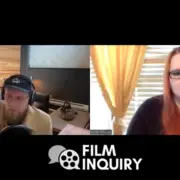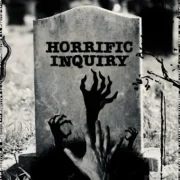TRUE HISTORY OF THE KELLY GANG: A History Of Violence
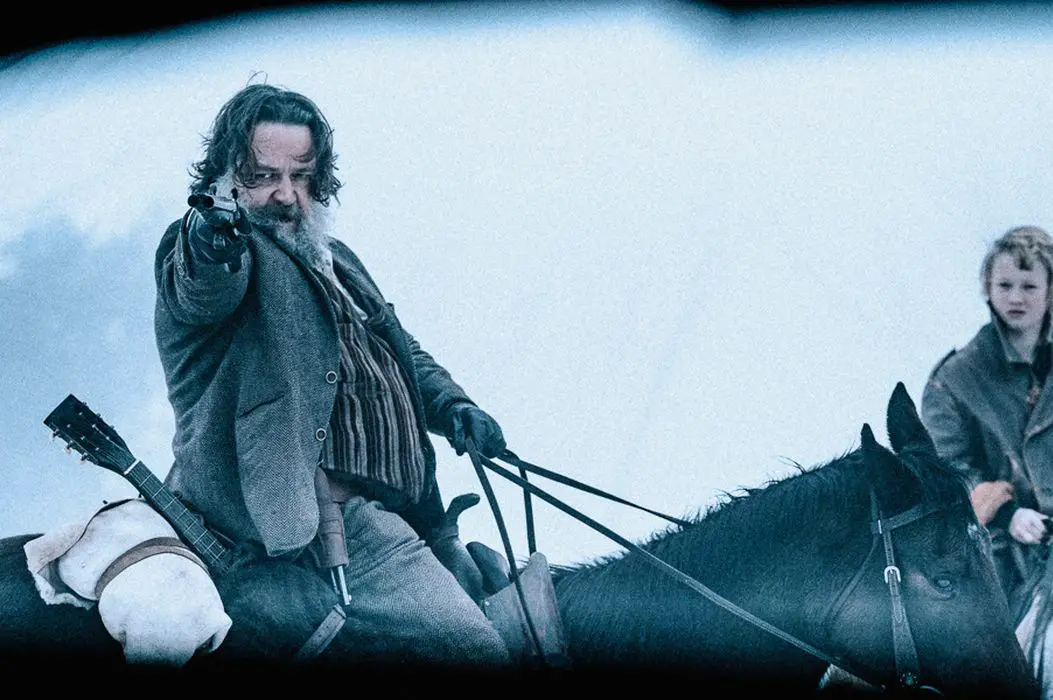
I'm a student at the University of North Carolina at…
At the very beginning of Justin Kurzel‘s True History of the Kelly Gang, an older version of Ned Kelly (played by 1917‘s George MacKay) professes that what we are about to hear is the truth of his life: no lies, no falsehoods, no mistakes. He’s theoretically speaking to his young child, but this voiceover introduction is similarly pointed at the film’s audience. This speech from Kelly—and the equally amusing inclusion of “True History” in the film’s title—is obviously ironic in the grand scheme of things, as it’s hard to imagine many films delving headfirst into historical revisionism quite like this one. Rock music, flashing lights, and modern clothes populate Kurzel‘s singular vision; there’s little objective truth to be found here.
Regardless, the ironic opening also establishes the film’s reflexive interest in narratives—how stories are twisted and molded into legendary fables. All of this is interesting enough, which makes it even more of a shame that the final product can’t quite live up to this promise. Overlong and overly unpleasant, with an intense focus on Ned’s childhood that turns the film into a structurally lopsided mess, True History of the Kelly Gang wants us to sympathize with a murderer who suffered great trauma from birth to death. It’s just unfortunate that the film’s most critical moments simply fall flat.
Murder and Misery in the Wilderness
Young Ned Kelly (Orlando Schwerdt) was born in the wilderness of Australia. To say that he had a bad childhood may be the greatest understatement of all time.
His father (Ben Corbett) was a loser who couldn’t provide for his family. His mother, Ellen Kelly (Essie Davis), was a prostitute who often served the corrupt Sergeant O’Neil (Charlie Hunnam), much to the disdain of her son. One day, Ned ends up killing an animal and providing meat for his entire family, usurping his father as the man of the house. Unfortunately, you can’t just go around killing other people’s livestock, and Ned’s father ends up taking the fall for a move that would certainly have netted his boy a stint in prison. Six months later, Ned’s father is dead.
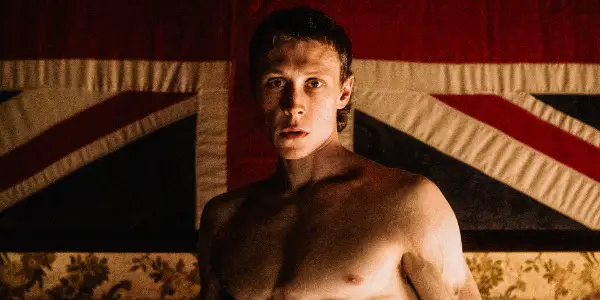
Despite his promise as a young scholar with intellect and wit, Ellen sells Ned off to Harry Power (Russell Crowe), a famed Australian bushranger whose charisma and drunkenness know no bounds. Harry’s job is to take Ned under his wing and make a man out of him, traveling through the country together as partners. Harry and Ned initially get along well, but when the former’s penchant for violence becomes too much to stomach, conflict arises. Eventually, Ned ends up making a fatal miscalculation at Harry’s urging, resulting in a jail stint for the young lad.
Several years later, Ned Kelly is now an adult, estranged from his family and working as a wrestler for the entertainment of the rich. He eventually returns home and begins to reconnect with his family; he also meets Constable Fitzpatrick (Nicholas Hoult), a friend who will soon become a bitter foe. During this more tranquil period, Ned also meets Mary (Thomasin McKenzie), his first real love in life. But the peace in the Kelly household doesn’t last, and Ned ends up falling down a darker path than he ever did before. The Kelly gang is formed, and the bloodshed is only getting started.
All-Star Cast & Stylish Direction
There’s one indisputable fact about True History of the Kelly Gang: this is one spectacular cast, giving it their all in favor of a marvelous directorial vision. George MacKay, hot off his lead role in the Oscar-winning 1917, challenges himself with a darker, more violent role. Charlie Hunnam and Nicholas Hoult play despicable scumbags with reckless abandon. Russell Crowe is almost as detestable, but his character is more charming: nobody is going to forget the particularly profane song that he gleefully sings to young Ned and his family. And then there’s Essie Davis, whose Ellen Kelly has to go down in the pantheon of nightmarish cinematic mothers. The Freudian bond between Ned and Ellen is strange enough, but there’s simply no bottom to Ellen’s desperation and anger.
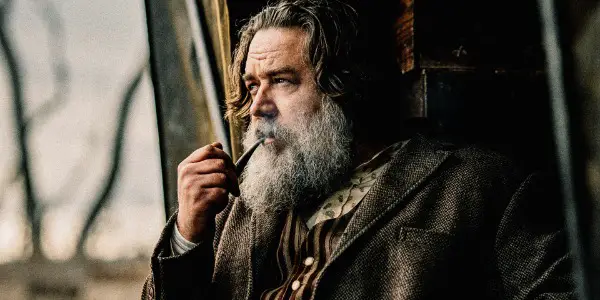
Kurzel, best known for his collaborations with Michael Fassbender on the artsy Macbeth and 2016’s Assassin’s Creed, brings a unique sensibility to the film. There’s no shortage of impressive images from Kurzel and Lady Macbeth cinematographer Ari Wegner, who fashion Kelly’s story as a three-way competition between historical opus, rock star biopic, and Joker origin story. The result is a fascinating hodgepodge of stylistic quirks, all blended together in a film that wears its violent, devil-may-care contemptuousness on its sleeve. You can say a lot of things about True History of the Kelly Gang, but nobody can call it a retread.
Strange Structure Leads to Diminishing Returns
Where Kurzel goes wrong is in the details. Pulling off this story requires a careful calibration of the narrative, which neither Kurzel nor screenwriter Shaun Grant can provide. For a movie that proclaims to be about the Kelly gang—the notorious group of ne’er-do-wells who took Australia by storm—it takes forever to get to that point. Instead, the film is front-loaded with a plethora of scenes with young Ned, who is played wonderfully by relative newcomer Orlando Schwerdt. Still, the first act of this film is simply too long, and it hinders the development of the narrative down the stretch.
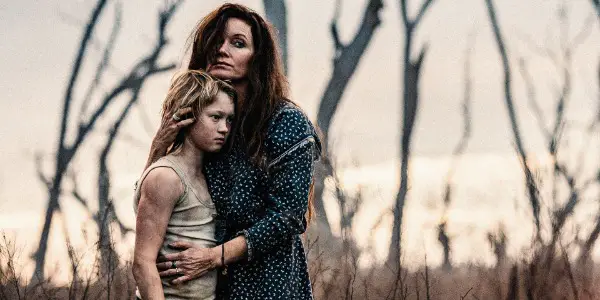
The early wheel-spinning could be forgiven if Kurzel pulled off the narrative’s big reversal with more dramatic panache. We have to believe that Kelly, a character who has gained our sympathies and once recoiled at the sight of a dead man, is now committed to being a violent outlaw. And not only that—we must believe that he takes pleasure in it, that he loves his supposed revenge against the British. MacKay does his best to convince us of Kelly’s sudden turn, but it never clicks. This transition happens at such a late stage in the narrative that it loses any impact. Kelly’s reign of terror in Australia feels sloppy and ill-conceived; it’s very possible that the real history echoes this chaos. But in the film, there’s no uniform track for his rise and fall: his ascendance to criminal prominence is as rapid as his downfall.
The whole film ends up feeling like a series of missed opportunities. Thomasin McKenzie, star of the fantastic Leave No Trace (and Jojo Rabbit‘s only saving grace), appears as Kelly’s love interest, but she’s left with nothing to do but act as a motivation for our anti-hero. The film also deliberately invites a queer reading of Kelly and his fellow gang members, but this subtext is both vague and disregarded when necessary, which never makes it feel properly explored as an essential and compelling aspect of the story. The real-life Kelly gang wore dresses, but Kurzel does little with this quasi-historical thematic angle, only using Kelly’s increasingly androgynous outfits and penchant for eye make-up as misguided signs of his madness. That, in and of itself, is certainly a problematic approach.
True History of the Kelly Gang: Conclusion
True History of the Kelly Gang ends on an inevitably tragic note, and there’s certainly reason to feel bad for Ned Kelly. He was, in many ways, a victim of circumstances: a manipulative mother, a terrible childhood, the betrayal of friends and family. But Kelly’s violence is reprehensible, and it’s shown in such graphic detail that it’s hard to really get behind the film’s sympathetic argument. For me, the experience was, sadly, a lot like watching Todd Phillips‘ Joker. I get that this guy had an awful life—but c’mon, he’s still a violent murderer.
The comparison is even more apt because I think both films revel in their unpleasantness—there’s a scene in this film where Nicholas Hoult‘s character just starts waving a gun at a baby for no reason. If the film hadn’t already lost me, it lost me there. True History of the Kelly Gang has plenty of potential, but for a myriad of reasons, it just never coheres into what it could have been.
What did you think of True History of the Kelly Gang? Are you a fan of Justin Kurzel’s previous features? Let us know in the comments below!
True History of the Kelly Gang was released on February 17, 2020 in the UK and will be available on Vudu on April 24, 2020 in the US. For full international release information, click here.
Does content like this matter to you?
Become a Member and support film journalism. Unlock access to all of Film Inquiry`s great articles. Join a community of like-minded readers who are passionate about cinema - get access to our private members Network, give back to independent filmmakers, and more.
I'm a student at the University of North Carolina at Chapel Hill. For 8 years, I've edited the blog Martin on Movies. This is where I review new releases, cover new trailers, and discuss important news in the entertainment industry. Some of my favorite movies- Casablanca, Inception, Singin' in the Rain, 2001: A Space Odyssey, The Wolf of Wall Street, The Nice Guys, La La Land, Airplane!, Skyfall, Raiders of the Lost Ark. You can find my other reviews and articles at Martin on Movies (http://martinonmovies.blogspot.com/).



